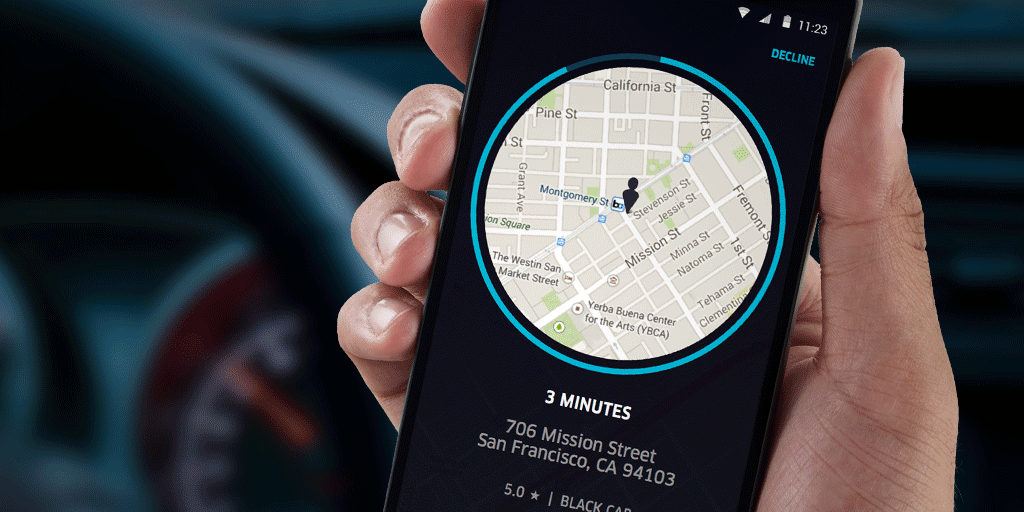As companies moved jobs overseas to cut costs years ago, and then brought them back to provide better service in more recent times, outsourcing became an ugly word to describe what not to do in corporate America. But tomorrow’s job threat is potentially much closer to home with smart computers and responsive technology in robots that can do almost anything a human can do.
Technology is all about speed and things are about to get much faster thanks to the next generation of mobile broadband called 5G. Mobile speeds promise to be more responsive and up to 40 times faster for consumers. But the residential aspect is only part of the story.
Read MoreFrom autonomous vehicles to automated everything, the pace of smart city technology is accelerating, sparking equal parts enthusiasm and anxiety. Industry and government leaders around the world are looking for guidance as they attempt to navigate the unknowns accompanying these shifts. It turns out that looking inward to the middle of the U.S. may yield some of the greatest insights.
Read MoreRead More“The U.S. must align its national priorities with innovation policy. The UAE and China certainly are.” In a couple of sentences, tech founder Amir Husain, who just raised $32.5 million for his AI startup, Spark Cognition, gave the call to action for city leaders and policymakers nationwide.
the state of America’s airports is just one symptom of our aging infrastructure. Bridges, roadways and our digital infrastructure are also at a critical point. It is time to think big when it comes to infrastructure investments, to look to the future and to innovate across federal, state and local governments.
Read MoreIndianapolis, known as the “Amateur Sports Capital of the World”, is home to the National Collegiate Athletic Association and has hosted world championships in swimming, rowing, and basketball. Its sports facilities are anything but amateur and have become the envy of the nation.
Read MoreThe same innovations transforming business are also transforming cities. Rapid advances in technology, including the Internet of Things (IoT), machine learning, Artificial Intelligence (AI) and advanced mobile broadband capacity, can deliver a highly connected, seamlessly automated, data-rich reality.
Read MoreChicago smart city leaders gather for Digi.City Connects at 1871 to talk smart cities, data and how the city is navigating the digital future.
Read MoreWhen it comes to economic metrics, the United States is used to being ranked #1. In 2016, the US Gross Domestic Product (GDP) was $18.6 trillion, seconded only by China at $11.2 trillion followed by Japan, Germany and the United Kingdom. If this premier position brings you comfort, it shouldn’t last long. These numbers measure the past – the production and manufacturing of a tangible product. However, technology moves our world in a different direction. It is less about production and more about the digital economy.
Read MoreWhen you hear the term 'city government' you may think of a bureaucratic monolith instead of hotbed of innovation. But many cities--like Tampa, Denver, Phoenix and San Diego--are transforming themselves and developing new approaches to age-old urban issues while also creating opportunities for entrepreneurs.
Read MoreAmerica is full of companies who leverage their underdog status to sneak up on bigger competitors. Avis (CAR) even made a tagline out of it, "When you're only No. 2, you try harder." In an era where cities are steadily embracing private sector principles, this same adage applies. And thanks to the leveling effect of technology, the gap between historical winners and smaller, more nimble players is quickly narrowing.
Read MoreUber is synonymous with disruption and transportation. What started with ridesharing has expanded to autonomous (driverless) vehicles and even plans for flying cars. Whether you love them or loathe them, there are some important lessons you can learn from the company's journey.
Read MoreWhen you compare a city-nation like Singapore to the United States, there are a number of differences, but one is fairly obvious: size. Singapore’s population of 5.8 million is roughly equivalent to that of Wisconsin. The total land area (278 square miles) is about the size of Lexington, Kentucky. In addition, Singapore has an inherent lack of natural resources. These two factors are very real constraints.
Read MoreOrlando’s Chief Information Officer (CIO), Rosa Akhtarkhavari, wants to save lives using connected technology. And as more urban areas across the globe are utilizing data collected from sensors, cameras and devices to become smart cities, Akhtarkhavari and the City of Orlando are working hard to build a smarter Orlando.
Read MoreWhen you search online for images of a city, chances are you'll find pictures of buildings, roads, bridges and lights. It's natural to think of a city in terms of its physical infrastructure. But today, we are in the emergence of a new digital reality in which a city's invisible infrastructure is just as important as the physical.
Read MoreTAMPA — When a teacher plunked the wrong kid in his car at school pickup time a few years ago, Saravana Pat Bhava was infuriated. But the Tampa father’s anger quickly dissipated when he realized the teachers didn’t have the resources they needed to properly manage the process.
Read MoreIf you pay attention to the headlines, you would think that, as a country and as a society, we have never been more divided. Because we are humans who crave the concept of clan, it is only natural to seek experiences that exemplify how we can come together.
Read MoreHalf of the world's 7.5 billion people are connected to the Internet and we are well on track to hit 50 billion devices by 2020. Yet with all of this activity, there are still many missed opportunities to seamlessly make connected things work for people. As the Internet of Things (IoT) continues to emerge, the answer may be right in the middle of our daily existence--in the workplace.
Read More



















